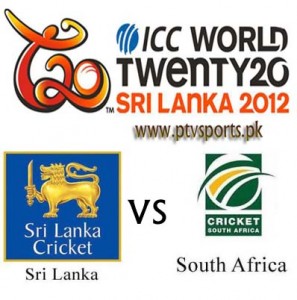Wednesday 26th September 2012 |
|||
|---|---|---|---|
|
Fixture Timing Arsenal V Coventry 19:45 |
|||
|
Carlisle
V
Tottenham 19:45
|
|||
|
Man Utd
V
Newcastle 19:45
|
|||
|
Norwich
V
Doncaster 19:45
|
|||
|
QPR
V
Reading 19:45
|
|||
|
West Brom
V
Liverpool 20:00
|
|||
Pakistan Super League 2022
2022 Pakistan Super League is the seventh season of the Pakistan Super League, a franchise Twenty20 cricket league which was established by the Pakistan Cricket Board in 2015. The league began on 27 January 2022, with the final scheduled to take place on 27 February.
ICC Announced Schedule of 2022 ICC T20 World Cup 2022.
The International Cricket Council has announced the schedule for the 2022 ICC T20 World Cup 2022. Accordingly, the mini-World Cup to be held in Australia will take place on October 16
This is default featured slide 3 title
Go to Blogger edit html and find these sentences.Now replace these sentences with your own descriptions.This theme is Bloggerized by Lasantha Bandara - Premiumbloggertemplates.com.
This is default featured slide 4 title
Go to Blogger edit html and find these sentences.Now replace these sentences with your own descriptions.This theme is Bloggerized by Lasantha Bandara - Premiumbloggertemplates.com.
This is default featured slide 5 title
Go to Blogger edit html and find these sentences.Now replace these sentences with your own descriptions.This theme is Bloggerized by Lasantha Bandara - Premiumbloggertemplates.com.
26 September 2012
Capital One Cup - Third Round
Result of Barclays Premier league
Sun 23 Sep 2012 - Premier League
- Liverpool 1 - 2 Man Utd
- Newcastle 1 - 0 Norwich
- Man City 1 - 1 Arsenal
- Tottenham 2 - 1 QPR
- Swansea 0 - 3 Everton
- Chelsea 1 - 0 Stoke
- Newcastle P - P Norwich Postponed - now being played Sun, Sept 23
- Southampton 4 - 1 Aston Villa
- West Brom 1 - 0 Reading
- West Ham 1 - 1 Sunderland
- Wigan 1 - 2 Fulham
- Everton 2 - 2 Newcastle
Nazir takes Pakistan to Super Eights with super chase
 Pakistan's celebrated bowling unit's rare off day put a latch on it, but
their batsmen smashed through the qualification door by chasing down
176 - their highest successful chase - with eight balls to spare.
Pakistan's celebrated bowling unit's rare off day put a latch on it, but
their batsmen smashed through the qualification door by chasing down
176 - their highest successful chase - with eight balls to spare.
Smart stats
|
25 September 2012
Capital One Cup - Third Round
Tuesday 25th September 2012
| Fixture | Kick-off | Status | |
|---|---|---|---|
| Bradford V Burton Albion | 19:45 | Preview Bradford Vs Burton Albion | |
| Chelsea V Wolves | 19:45 | Preview Chelsea Vs Wolves | |
| Crawley V Swansea | 19:45 | Preview Crawley Vs Swansea | |
| Leeds United V Everton | 19:45 | Preview Leeds United Vs Everton | |
| Man City V Aston Villa | 19:45 | Preview Man City Vs Aston Villa | |
| MK Dons V Sunderland | 19:45 | Preview MK Dons Vs Sunderland | |
| Preston V Middlesbrough | 19:45 | Preview Preston Vs Middlesbrough | |
| Southampton V Sheff Wed | 19:45 | Preview Southampton Vs Sheff Wed | |
| Swindon V Burnley | 19:45 | Preview Swindon Vs Burnley | |
| West Ham V Wigan | 19:45 | Preview West Ham Vs Wigan | |
Rain pain for Ireland again
 West Indies qualified for the Super Eights of the World T20 after rain
prevented a second innings in their key Group B game against Ireland in
Colombo. It meant Ireland exited on the back of a no-result for the
second World T20 running, after they were denied the chance to beat
England by the weather in Guyana in 2010.
West Indies qualified for the Super Eights of the World T20 after rain
prevented a second innings in their key Group B game against Ireland in
Colombo. It meant Ireland exited on the back of a no-result for the
second World T20 running, after they were denied the chance to beat
England by the weather in Guyana in 2010.
Today Big Match: Pak vs Bang
Pakistan began their World Twenty20 campaign with success, after being made to wait for five days, beating New Zealand by 13 runs. But they looked a better side than the margin suggested; it was narrowed thanks to a late, and failed, onslaught by Ross Taylor.
24 September 2012
Sharma and spinners destroy England
 The result may not have great significance in this World Twenty20 but
India could take heart, confidence and bragging rights after an
overwhelming victory over England in their Group A game in Colombo.
England's confidence, meanwhile, must have been crushed after a defeat
that can only be described as humiliating.
The result may not have great significance in this World Twenty20 but
India could take heart, confidence and bragging rights after an
overwhelming victory over England in their Group A game in Colombo.
England's confidence, meanwhile, must have been crushed after a defeat
that can only be described as humiliating.
Smart stats
|
All-round Hafeez downs New Zealand
 Mohammad Hafeez and Nasir Jamshed
cashed in on a below-par performance from New Zealand in the field,
putting together an impressive partnership during which their timing and
apparent effortlessness in building on an aggressive opening stand
stood out. The depth and variety in Pakistan's bowling, Hafeez's miserly
spell and New Zealand's questionable tactics in the chase combined to
put a target of 178 beyond reach, producing a winning start to
Pakistan's tournament.
Mohammad Hafeez and Nasir Jamshed
cashed in on a below-par performance from New Zealand in the field,
putting together an impressive partnership during which their timing and
apparent effortlessness in building on an aggressive opening stand
stood out. The depth and variety in Pakistan's bowling, Hafeez's miserly
spell and New Zealand's questionable tactics in the chase combined to
put a target of 178 beyond reach, producing a winning start to
Pakistan's tournament.
22 September 2012
Today Fixtures Barclays Premier League
Saturday 22nd September 2012
Swansea V Everton 12:45Chelsea V Stoke 15:00
Southampton V Aston Villa 15:00
West Brom V Reading 15:00
West Ham V Sunderland 15:00
| Wigan V Fulham 15:00 |
Wright's 99 helps England start impressively
 The World Twenty20 continued to conform to expectation - disappointingly
so, some will say - as England began the defence of their title with a
116-run hammering of Afghanistan. Luke Wright
could not quite follow Brendon McCullum's hundred earlier in the day,
but produced a blistering 99 off 55 balls after the holders overcame a
slightly tricky start in highly convincing fashion.
The World Twenty20 continued to conform to expectation - disappointingly
so, some will say - as England began the defence of their title with a
116-run hammering of Afghanistan. Luke Wright
could not quite follow Brendon McCullum's hundred earlier in the day,
but produced a blistering 99 off 55 balls after the holders overcame a
slightly tricky start in highly convincing fashion.
Brendon McCullum ton razes Bangladesh
 Brendan McCullum broke a few Twenty20 international records in New
Zealand's 59-run win over Bangladesh in the Group D opener in Pallekele,
but his spectacular 123 off just 58 balls more importantly gave his
team the breathing space in the tournament's toughest group. McCullum
broke the record for the highest score in Twenty20 internationals when
he went past Richard Levi's 117 made earlier this year (which,
coincidentally, came against New Zaland), and has also become the first
batsman to score two hundreds in this format.
Brendan McCullum broke a few Twenty20 international records in New
Zealand's 59-run win over Bangladesh in the Group D opener in Pallekele,
but his spectacular 123 off just 58 balls more importantly gave his
team the breathing space in the tournament's toughest group. McCullum
broke the record for the highest score in Twenty20 internationals when
he went past Richard Levi's 117 made earlier this year (which,
coincidentally, came against New Zaland), and has also become the first
batsman to score two hundreds in this format.
21 September 2012
20 September 2012
UEFA EUROPA LEAGUE - GROUP C
 Thursday 20th September 2012
Thursday 20th September 2012
| UEFA EUROPA LEAGUE - GROUP C | |||
|---|---|---|---|
| Show last 5 matches and coverage | Fixture | Kick-off | Status |
AEL LimassolvBorussia M'gladbach
| 18:00 | ||
BordeauxvClub Bruges
| 18:00 | ||
DniprovPSV Eind'ven
| 18:00 | ||
FC CopenhagenvMolde
| 18:00 | ||
FenerbahcevMarseille
| 18:00 | ||
Hapoel Tel-AvivvAtl Madrid
| 18:00 | ||
| 18:00 | |||
NapolivAIK Solna
| 18:00 | ||
PlzenvAcademica
| 18:00 | ||
UdinesevAnzhi Makhachkala
| 18:00 | ||
VfB StuttgartvSteaua Buch't
| 18:00 | ||
| 18:00 | |||
Athletic BilbaovHapoel Kiryat Shmona
| 20:05 | ||
B LeverkusenvMet'st Kharkiv
| 20:05 | ||
FC TwentevHannover 96
| 20:05 | ||
GenkvVideo Fehervar
| 20:05 | ||
Inter MilanvRubin Kazan
| 20:05 | ||
LevantevHelsingborgs
| 20:05 | ||
LyonvSparta Prague
| 20:05 | ||
NK MariborvPanathinaikos
| 20:05 | ||
Partizan BelgradevNeftchi
| 20:05 | ||
Rapid ViennavRosenborg
| 20:05 | ||
SportingvFC Basel
| 20:05 | ||
| 20:05 | |||





















